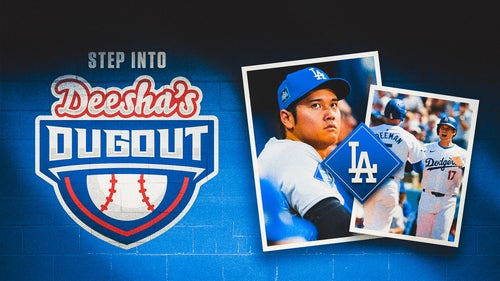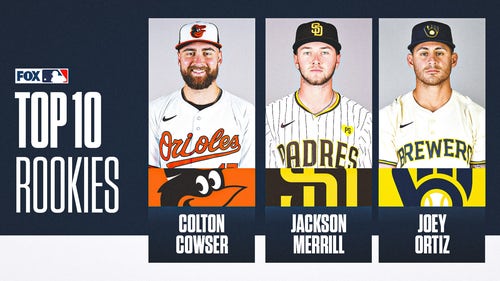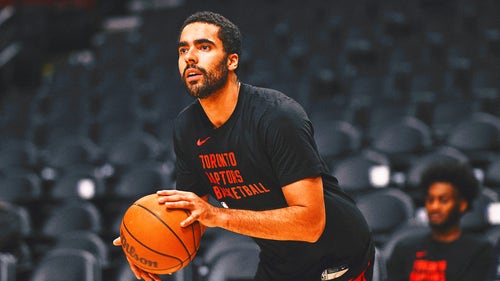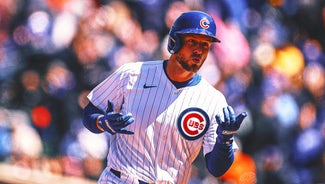
Which MLB teams are most changed since Opening Day?

by Jeff Sullivan
We’re conditioned to believe that it’s all about wins and losses. This is because, ultimately, it tends to all be about wins and losses. There’s the whole concept of “true talent”, but true talent isn’t what gets a team to the playoffs — teams get to the playoffs because they accumulate a sufficient number of wins, by whatever means possible. And so we put a lot of importance on team record. We figure the good teams are the teams with wins, and we figure the bad teams are the teams with losses. On some level it’s almost insane to think this could possibly be wrong.
But there are results, and there are evaluations. Right now, the Astros have the best record in the American League. Are the Astros the best team in the American League? According to wins and losses, the answer is inarguably yes. Go beyond wins and losses, though, and there’s a lot more to argue. Team record is only one indicator, and especially this early, it can be a misleading one. This all brings us to the question being addressed.
Which teams are the most changed since Opening Day? That is, which teams have gotten better, and which teams have gotten worse? If you just look at the standings, you’d say, for example, the Astros and Twins have clearly gotten better. The Red Sox have clearly gotten worse, and so have the A’s. But sometimes, results come down to fluky events. In a recent Twitter stream, MGL talked about how wins and losses can throw you off the scent. Let’s think about an alternative approach, that you’ve probably already figured out.
At any given moment, our best understanding of a player or team’s ability is provided by a projection, that uses recent performance to try to predict the future. You know how projections work. The projections don’t know everything. Relative to the scope of everything, the projections actually know almost nothing. But they know the statistics, and they know which statistics tend to be predictive. We can never know actual true-talent level, but we can ballpark it, by checking to see what’s expected from this point on.
So, team projections. Team projections are hard, because they’re built upon a bunch of assumptions. We have to collect a bunch of individual player projections, and we have to guess at depth charts and playing time, and we have to ignore intangibles like, say, manager leadership. But we do all right. Team projections function as an estimate of team talent. And we have team projections that update every day.
The question, then, can be addressed very simply! Which teams have changed the most since Opening Day? Take a team’s current rest-of-season projection, and compare it to the team’s Opening Day season projection. We store all this information on the Playoff Odds page. Following, a few graphs. I should note that strength of schedule is considered in the calculations, and schedule strengths are no longer what they were in early April, but this is a pretty small factor.
As you can see here, the projections, by and large, see a similar landscape as they did a couple months ago. There’s not a whole lot of major movement, which shouldn’t be surprising, really, because it takes a while to convince the calculations that true talent has meaningfully changed. It’s not that two months of performance are meaningless; it’s that two months aren’t as important as several preceding years, in many cases.
But, that doesn’t directly answer the question. This more directly answers the question. On a team-by-team basis, current projected performance minus Opening Day projected performance:

This is where you might be a little surprised. I don’t know, I don’t know you. No team has seen a bigger decline in projected record than the Cardinals. The Cardinals have the best record in baseball. So it seems absolutely silly to suggest their true talent has gotten worse the most, since they have half as many losses as wins. But if you can separate yourself from actual record for a moment, maybe this isn’t so strange. The Cardinals did just lose Matt Adams, probably or possibly for the year. They already lost Adam Wainwright for the year, and there’s no replacing that. Jason Heyward hasn’t been himself, which is a smaller factor. Mostly, this is about injuries, instead of performance.
The Angels have the second-biggest drop. They gave away Josh Hamilton, and Matt Joyce has been terrible. Albert Pujols has been thoroughly average, and it’s not good for the projections to have Jered Weaver at reduced velocity. By true talent, over a full season, the projections now see the Angels as about three wins worse. As for the Brewers and Reds, maybe those are more obvious. And the precisely-.500 Rays? Even with Chris Archer‘s emergence, it’s brutal to definitely lose Alex Cobb, and possibly lose Drew Smyly. Those are two good and important pitchers, and the Rays don’t have in-house replacements.
The Yankees are in charge at the other end. In part, it’s about the other teams in their division all looking worse. The Yankees project better, by three wins over a 162-game schedule. Alex Rodriguez looks better than was expected of him. Mark Teixeira is blowing his projections out of the water. And Michael Pineda has seemingly further improved his command, so he’s helped to greatly stabilize an unstable rotation.
The Pirates follow the Yankees — with a hat tip to Gerrit Cole — and then the Cubs are in a small group of teams following the Pirates, ever so close. It’s interesting to see the Dodgers projecting a little bit better, even with the injuries they’ve sustained. Perhaps it’s not so desperate a situation after all. The Indians project better, despite sitting in last place. The Astros and Royals project better, but only slightly; the Twins don’t project better at all, despite their record, because they’ve actually more or less played right to their projections when you dig deep. The numbers see no reason to believe more strongly in the Twins than two months ago. The Twins have simply accumulated an unlikely number of wins.
I don’t want to sit here and act like this is authoritative and impossible to argue. There are dozens of questions you could ask about every single team, all of them legitimate, and there are definitely cases where the projections are off. We all know they’re slow to react to sudden changes in ability, and there is such thing as a sudden change in ability. But those individual cases tend not to have big effects on the larger picture. In the larger picture, there are wins and losses, which are the most important things, but they’re not the most important things when you’re thinking about actual talent. There’s a relationship, but it’s imperfect, especially over a third of the season. What’s been proven here? Nothing! But what’s been suggested is different from what the standings would suggest, and sometimes the standings love to tell you lies.
More from Fangraphs:













































































































































